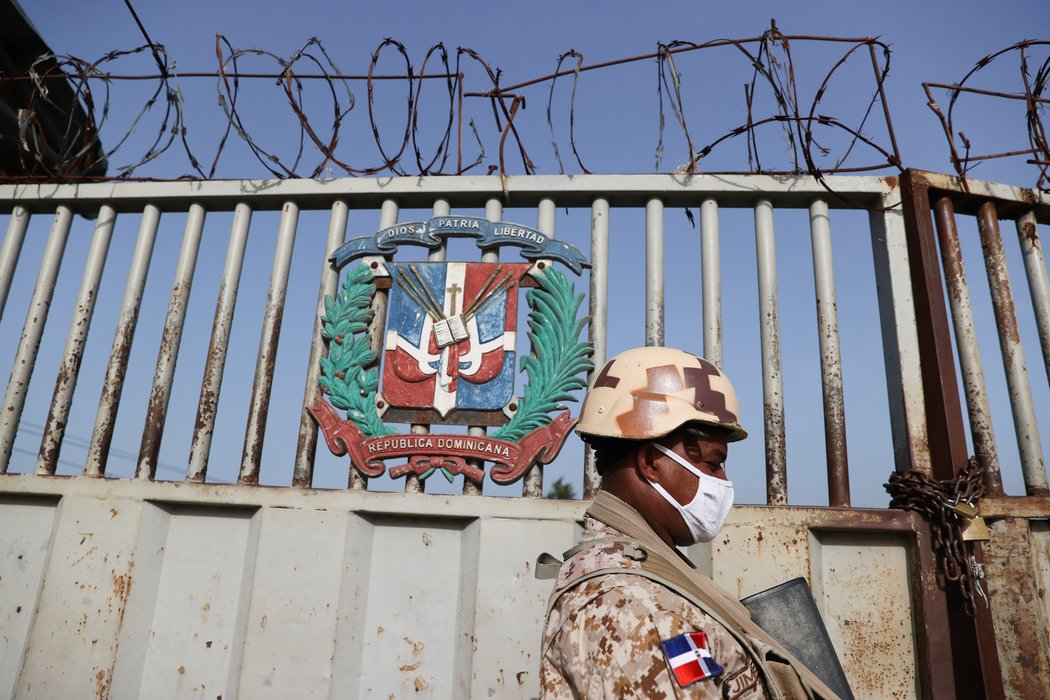
El Colectivo de organizaciones de gays, lesbianas, bisexuales, transexuales, transgéneros, intersexuales y queers de República Dominicana realizaron este domingo la décima tercera Caravana Nacional del Orgullo LGBTIQ.#NoticiasRNN #LGBT @Yimbort pic.twitter.com/fmhnrEZGEQ
— Noticias RNN (@NoticiasRNN) August 30, 2021
Peaceful Assembly
LGBTQIA+ and feminist groups continue to protest Penal Code
As previously reported by the CIVICUS Monitor, the new Penal Code in discussion by lawmakers generated concern by civil society groups defending women’s rights and LGBTQIA+ rights. The legislation would continue to criminalise abortion in most situations and does not establish protections against discrimination based on sexual orientation and gender identity.
On 29th August 2021, the Dominican Republic’s LGBTQIA+ communities celebrated their annual Pride Parade. The parade brought together hundreds of people who drove down the main avenues of Santo Domingo waving rainbow flags. Although the atmosphere was festive, attendees warned of the danger that the new Penal Code could pose if approved without changes.The executive director of Dominican Diversity, Rosana Marsán, warned that this Penal Code would “legalise what is currently happening in the country, which is the violence and discrimination that we suffer every day.”
On 13th October 2021, feminist and LGBTQIA+ organisations held a press conference to call on legislators to modify the Penal Code’s text. They said the proposed Code, which would continue to ban abortion in all cases except when the pregnant woman’s life is in danger, would have “grave consequences” for the life, health and dignity of women in the Dominican Republic.
In November 2021, Senators approved the draft Penal Code on two readings, without any of the changes demanded by these civil society groups. The legislation will return to the Chamber of Deputies, where it is expected to be studied and verified again.
On 25th November 2021, International Day for the Elimination of Violence against Women, women’s rights groups marched toward the National Congress building, putting the decriminalisation of abortion among their key demands. They called for a life free of all types of violence for women and girls.
Protests against tailings dam construction
|#CiudadaniaRDMedia|#PROTESTA: Miles marchan al Palacio Nacional contra la Barrick Gold@ambienterd @orlandojm @BarrickRD #presadecolahttps://t.co/DaLTkXWFW6 pic.twitter.com/jQSBzuQosV
— Ciudadanía RD Media (@CiudadaniaRD20) September 19, 2021
On 19th September 2021, more than 4,000 people marched for environmental rights in Santo Domingo. The demonstrators protested against the construction of a tailings dam in the Yamasá municipality and against the expansion of Barrick Gold mining in the Monte Plata province. The organisers with the National Popular Coordinating Committee said that the wastewater from the tailings dam could lead to the contamination of the headwaters of the Ozama and Isabela rivers with toxic materials.
The march was joined by several social movements and groups, including feminist organisations, workers’ unions and anti-mining activists. Members of the National Human Rights Commission were also present. In August 2021, several organisations signed a letter calling on the government to protect the waters of the Ozama river. They denounced that mining by Barrick Gold had led to contamination in Cotuí, and that the local population there had been receiving bottled water from the government due to the pollution of the region’s potable water. People in Monte Plata have also protested against the tailings dam project.
Protests for Haitian migrants’ rights
La Policía Nacional interceptó arbitrariamente este lunes 8 de noviembre una movilización de más de 300 trabajadores cañeros que se preparaban para salir de la Av. Ovando con Gómez hacia el Palacio Nacional, en defensa de los derechos humanos pic.twitter.com/RhOLdZL1i0
— reconoci.do (@reconoci_do) November 8, 2021
On 22nd November 2021, workers with the Unión de Trabajadores Cañeros (Sugarcane Workers Union - UTC) protested against government measures restricting the rights of Haitian migrants and people of Haitian descent. In particular, they condemned deportations of pregnant women by Dominican authorities. They also demanded pension payments for sugarcane workers, many of whom are of Haitian origin or descent. As reported by news outlets, the protesters were prevented by police from marching to the National Palace. In a similar incident earlier in November 2021, armed nationalist groups threatened to attack UTC protesters in Santo Domingo. Because of the threats of violence, police prevented at least two other protests by sugarcane workers.
Authorities have adopted harsh measures against the Haitian population in the Dominican Republic as unrest in the neighbouring country led to an increase in migration. On 2nd November 2021, the government announced a series of measures such as the suspension of a visa programme for Haitian university students and the limitation of migrants’ access to healthcare services and to employment. In November 2021, more than 1,500 people were deported to Haiti in operations that the United Nations said failed to comply with national protocols and international conventions, in violation of migrants’ human rights. The Inter-American Commission on Human Rights also expressed concern about the reports of deportation of pregnant women by Dominican migration authorities.
More than 20 civil society organisations issued a public statement denouncing the Dominican Republic’s measures against the Haitian community as a violation of human rights. During protests on the International Day for the Elimination of Violence against Women, 25th November 2021, women’s rights groups also highlighted the abuses against migrant women in the country. They said measures adopted by the Abinader government are racist and dehumanising.